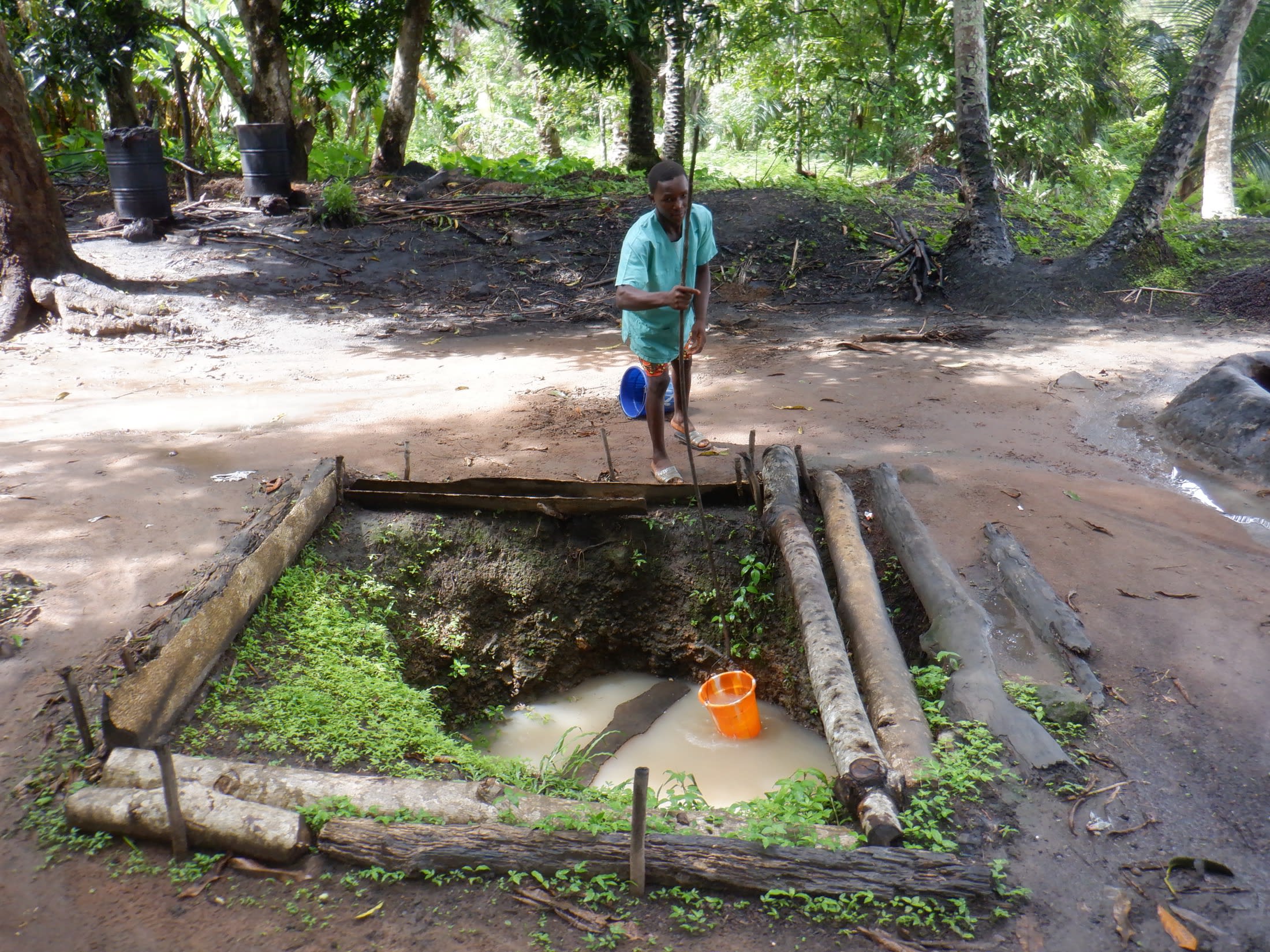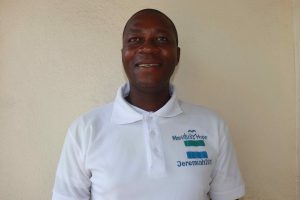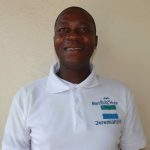People in Mayonkoh spend more time trying to find water than doing anything else, and still they cannot accomplish what they need to. Their only sources of water are a dug hole in the swamp and the rainwater they manage to collect from their rooves during the rainy season. But recently, the hole has been yielding less and less water.
In past years, Mayonkoh's 165 people were able to grow kitchen gardens behind their homes to help them quickly and easily prepare meals. But as the water supply in Mayonkoh shrank, they made concessions.
Mayonkoh has no more kitchen gardens because there's not enough water to irrigate them. Community members wear clothes for days at a time and forego bathing to preserve what little water they have. Some have had to sell the domestic animals they saved up money to purchase because they can't get enough water to keep them. And while most of the community members are Muslim, they cannot perform ablutions when they pray throughout the day.
"The water challenge in the community is affecting me seriously," said 31-year-old farmer Hawa Sesay.
"The water source is far from home. The road is tedious to walk when carrying [a] water container of twenty liters. It needs much time to fetch a single trip of water. It is a burden on me, which causes me sometimes prepare [our] meal very late in the evening. Most times, I finish cooking late at night, and this causes my children to go to bed hungry."
The community struggles so much for water, and yet the water they manage to collect is brown and milky, causing waterborne illnesses among many community members, especially children. Multiple children in the community have died in recent years due to this problem.
"My major [worry] is the health of [my] family because the water source we are drinking from is not safe and pure to drink," Hawa said. "Mostly, I and the children are contracting waterborne diseases such as diarrhea, dysentery, and skin rashes."
17-year-old Santigie K. (in the photo below at the water source) dreads fetching water the most of any of his chores. "I become bothered to fetch water from the swamp because of the distance through a bushy footpath, [where] I might be harm[ed] from snake or scorpion bite. It certainly takes me about eighty (80) minutes to make four trips of water from the water source. To fetch water from this water source is challenging on me."

"I must wake up very early at six a.m. to fetch at least eighty liters of water, which is four rubber containers that we use for bath[ing], wash[ing] dishes, and giv[ing] animals to drink. Consider a household of nine people. We all need water to use in the morning before we must go to school, and my mother must prepare [a] meal in the morning to eat at [the] same time. The water crisis [makes] me not to practice frequently wash my hands or it sometimes difficult bathe twice a day."
With a new well in Mayonkoh, people will be able to better take care of themselves and their loved ones. They'll have more free time, energy, and health to work on their goals and live long, happy lives.
What We Can Do:
New Well
Where we will be drilling is centrally located and will relieve many people of the long journey to fetch water and the challenge of accessing clean water.
Our team will drive over the LS200 mud rotary drill rig and set up camp for a couple of nights. Once the well is drilled to a sufficient water column, it will be cased, developed, and then tested. If these tests are positive, our mechanics will install a new India Mark II pump.
By drilling this borehole, TKKK and the surrounding community will be provided with plenty of accessible, clean drinking water.
Training
There will be hygiene and sanitation training sessions offered for three days in a row.
Community members will learn how to make a hands-free handwashing station called the "tippy-tap." We will use these tippy taps for handwashing demonstrations and will also teach about other tools like dish racks and the importance of properly penning in animals. We will highlight the need to keep restrooms clean, among many other topics.
This training will also strengthen a water user committee that will manage and maintain this new well. They will enforce proper behavior and report to us whenever they need our help in solving a serious problem, like a pump breakdown.

 Borehole Well and Hand Pump
Borehole Well and Hand Pump
 Rehabilitation Project
Rehabilitation Project
































